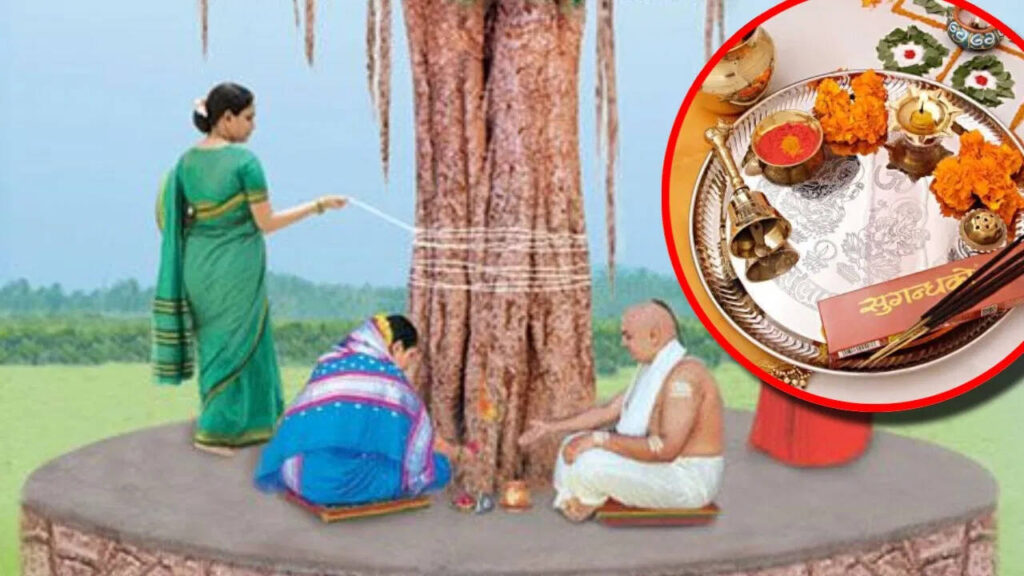Fasting festivals have special significance in Hinduism, and one of these festivals is Bad Amavasya or Vat Savitri fast, especially Suhagin women do for the long life and happiness and prosperity of their husbands. On this day the Vat tree (banyan tree) is worshiped and raw yarn (thread) is wrapped around it, that too 7 times.
Now the question is, why is the raw cotton wrapped on the tree and that too seven times? There is not only religious belief behind this tradition, but also a deep spiritual and scientific reason.
What is the importance of Badmavasya and Vat tree?
The Vat tree is considered a symbol of immortality, longevity and power in Hinduism. It is said that Tridev (Brahma, Vishnu and Mahesh) live in Vatavriksha. Brahma resides in its root, Vishnu in the stem and Shiva branches. This is the reason why its worship is considered especially fruitful.
Why is raw cotton wrapped 7 times?
🔸 Religious belief:
According to the legend of Savitri-Satyavan, Savitri demanded her husband Satyavan’s life from Yamraj, and did harsh penance by sitting under the Vat tree. Women revolve around the Vat tree as a symbol of the same tenacity and faith.
Raw cotton (thread) is a symbol of belief and bondage. Wrapping it with Vat tree, women wish to strengthen their married life.
Seven revolutions are considered to be a symbol of the marital bond of seven births. They are also considered a symbol of seven rounds in a way.
scientific approach:
Banyan tree is a store of oxygen, and its roots go very deep in the ground. Walking around it gives positive energy to both mind and body.
Sitting under the Vat tree, the mind concentrates by revolving and wrapping a thread, which gives meditation and mental peace.
Other symbolic meaning:
Raw cotton reflects the delicateness of life. Wrapping it carefully, women pledge that they will play their relationship with full allegiance and dedication.
This bond is a symbol of unwavering belief and love that a wife keeps for her husband.
What is the benefit?
Husband’s longevity and good health wish is fulfilled.
There is happiness, peace and love in married life.
Women feel mental strength and self -power.
conclusion:
The tradition of wrapping raw yarn seven times on the banyan on the day of Badmavasya is not just a religious custom, but a symbol of faith, faith, love and association with nature. This tradition teaches us that in order to tie relationships in life, reverence and restraint is necessary – just as a delicate thread can wrap a strong tree, similarly the relationship with faith and love also strengthen the relationship.
